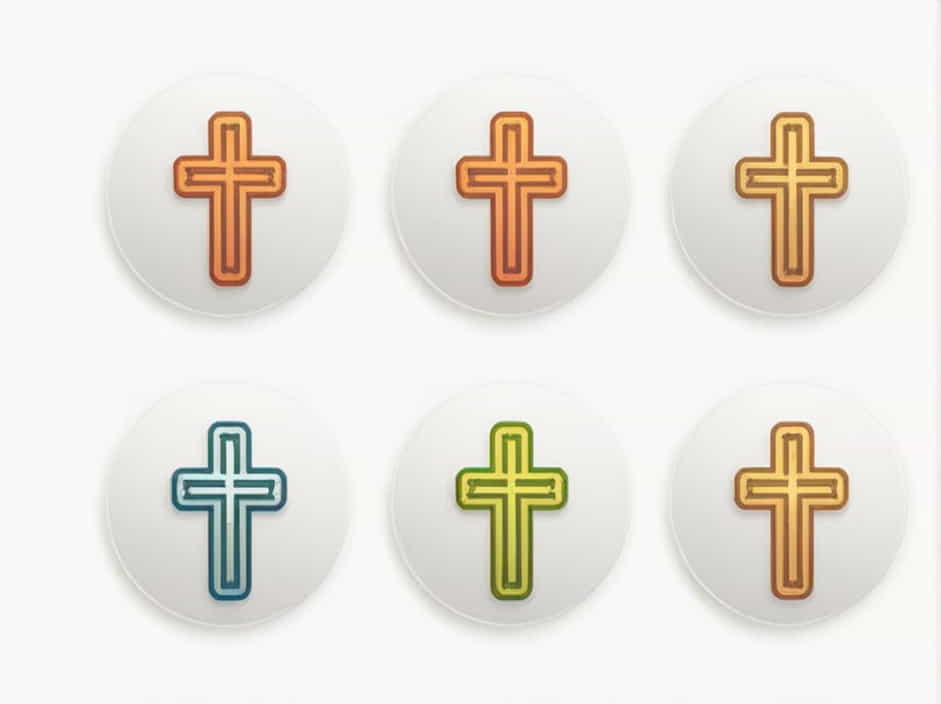The crucifixion of Jesus Christ is one of the most significant events in Christian history. It represents sacrifice, redemption, and salvation. The event, recorded in all four Gospels-Matthew, Mark, Luke, and John-has led to many questions about its meaning, purpose, and impact.
In this topic, we will explore common questions and answers about the crucifixion, helping readers understand its historical, theological, and spiritual significance.
What Is the Crucifixion?
The crucifixion was a brutal form of execution used by the Romans for criminals, rebels, and slaves. It involved nailing or tying a person to a wooden cross, leading to a slow and painful death. Jesus was sentenced to death by Pontius Pilate and was crucified outside Jerusalem at a place called Golgotha (Calvary).
Why Was Jesus Crucified?
Jesus was crucified for several reasons:
- Religious leaders accused Him of blasphemy (claiming to be the Son of God).
- Roman authorities saw Him as a political threat.
- God’s divine plan was for Jesus to die for the sins of humanity.
The crucifixion fulfilled Old Testament prophecies, such as Isaiah 53:5, which says:
‘He was pierced for our transgressions, He was crushed for our iniquities.’
Who Ordered the Crucifixion of Jesus?
The Roman governor Pontius Pilate ordered Jesus’ crucifixion. However, he did so under pressure from Jewish religious leaders and an angry crowd demanding Jesus’ execution. Although Pilate found no fault in Jesus, he allowed the crucifixion to maintain political stability.
What Happened Before the Crucifixion?
Before Jesus was crucified, several events took place:
- The Last Supper – Jesus ate the Passover meal with His disciples and instituted the Eucharist (Holy Communion).
- The Betrayal – Judas Iscariot betrayed Jesus for 30 pieces of silver.
- The Arrest in Gethsemane – Jesus was arrested after praying in the Garden of Gethsemane.
- The Trials – Jesus was tried before the Jewish Sanhedrin, then taken to Pontius Pilate and King Herod.
- The Scourging – Roman soldiers flogged and mocked Jesus, placing a crown of thorns on His head.
- The Journey to Golgotha – Jesus carried His cross to the site of His crucifixion.
How Did Jesus Die on the Cross?
Jesus was nailed to the cross through His hands and feet and left to die. Crucifixion caused extreme pain, dehydration, and suffocation. After several hours, Jesus gave up His spirit and died. His final words included:
- ‘It is finished.’ (John 19:30)
- ‘Father, into Your hands I commit My spirit.’ (Luke 23:46)
What Happened When Jesus Died?
Several supernatural events occurred at Jesus’ death:
- The temple curtain tore in two – Symbolizing that people now had direct access to God.
- Darkness covered the land – A sign of divine judgment and mourning.
- An earthquake shook the ground – Demonstrating God’s power.
- Graves opened, and the dead were raised – Indicating Jesus’ victory over death.
What Was the Significance of the Two Thieves?
Jesus was crucified between two criminals. One mocked Him, but the other recognized Jesus’ innocence and said:
‘Jesus, remember me when You come into Your kingdom.’ (Luke 23:42)
Jesus replied:
‘Truly, I tell you, today you will be with Me in paradise.’ (Luke 23:43)
This shows that salvation is available to anyone who repents and believes in Jesus.
Who Took Jesus’ Body After the Crucifixion?
A man named Joseph of Arimathea, a secret disciple of Jesus, asked Pilate for permission to bury Jesus’ body. He and Nicodemus wrapped Jesus in linen and placed Him in a tomb cut from rock.
Why Is the Crucifixion Important for Christians?
The crucifixion is central to Christian faith because:
- Jesus died to pay for humanity’s sins.
- It fulfills Old Testament prophecies.
- It demonstrates God’s love and justice.
- It leads to the resurrection, proving Jesus’ victory over death.
As stated in Romans 5:8:
‘God demonstrates His own love for us in this: while we were still sinners, Christ died for us.’
What Does the Crucifixion Teach About Forgiveness?
One of Jesus’ most powerful statements on the cross was:
‘Father, forgive them, for they do not know what they are doing.’ (Luke 23:34)
This shows that Jesus practiced what He preached, offering forgiveness even to His executioners. Christians believe that because Jesus forgave, they too should forgive others.
How Does the Crucifixion Relate to the Resurrection?
The crucifixion and resurrection are closely linked. Jesus’ death was a sacrifice for sin, and His resurrection proved His victory over death. Without the resurrection, the crucifixion would have been meaningless. As 1 Corinthians 15:17 states:
‘If Christ has not been raised, your faith is futile; you are still in your sins.’
How Should Christians Respond to the Crucifixion?
Christians respond by:
- Believing in Jesus as their Savior.
- Repenting of sins and seeking forgiveness.
- Living a life of love and gratitude.
- Sharing the message of the cross with others.
The crucifixion of Jesus is a powerful event that changed history. It is a story of love, sacrifice, and redemption. Through His death, Jesus made a way for salvation and eternal life. By understanding the crucifixion, we can appreciate the depth of God’s love and the significance of Jesus’ sacrifice.
